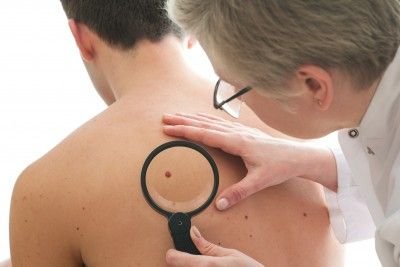Skin Cancer: When to Worry About Your Mole
Skin cancer is one of the most common types of cancer and can affect people of all ages. The biggest cause of skin cancer is prolonged exposure to strong sunshine, especially when the skin is unprotected by sun cream or clothing. Having a family history of skin cancer can also increase your risk, as can having fair skin, recurrent bouts of sunburn and a higher than average amount of moles on your body.
Most moles are nothing more than normal skin blemishes, caused by melanin in the skin. However, some moles can be an early warning sign of skin cancer. Early diagnosis is crucial for the successful treatment of skin cancer. Seek medical advice as soon as possible if you notice any of the following changes to your skin, as it could be an early warning sign of skin cancer.
New moles
New moles are always a cause for concern, especially if they are unusually large or look significantly different to other moles on your body. While the majority of new moles will be perfectly innocent, it is always best to get them checked out by a medical professional.
Changes to an existing mole
Changes to the colour of a mole should be reported to your doctor as soon as possible, as it could be an early warning sign of skin cancer. Changes to the size or thickness of a mole should also be reported, particularly if an existing mole starts to spread or thicken. Crusting or bleeding of a mole, changes in the texture of an existing mole or white spots on top of the mole could also be cause for concern.
Changes to the skin surrounding a mole
Changes to the skin surrounding a mole could also be a warning sign of skin cancer. Skin discolouration, white spots or redness of the skin surrounding a mole should be checked out by a medical professional. Other possible warning signs include soreness, itchiness, swelling, irritation and unusual sensations in the skin surrounding a mole. Unless there is a known reason for any of these symptoms, it is always best to check with your doctor.
Skin cancer can often be treated successfully, especially if it is caught early enough. Checking your body regularly for new moles or changes to existing moles is the best way to ensure early diagnosis of skin cancer. Report any changes to your doctor or medical health professional as soon as possible.
| Written by: | Michal Vilímovský (EN) |
|---|---|
| Education: | Physician |
| Published: | April 27, 2013 at 11:15 PM |
| Next scheduled update: | April 27, 2015 at 11:15 PM |
Get more articles like this in your inbox
Sign up for our daily mail and get the best evidence based health, nutrition and beauty articles on the web.


Ache in left arm that you should not ignore
Alkaline water dangers: why you should not drink it
How to Avoid Sleepiness While Studying?
23 Foods That Increase Leptin Sensitivity
Low dopamine (e.g. dopamine deficiency): causes, symptoms, diagnosis and treatment options
Swollen taste buds: the ultimate guide to causes, symptoms and treatment
Thin endometrial lining: causes, symptoms, diagnosis and treatment
Pimples inside nose: the complete guide
Holes in tonsils: definition, symptoms, treatment and prevention
How to deal with an ingrown hair cyst
Allegra vs. Zyrtec vs. Claritin
Allergy to penicillin and alternative antibiotics
How to get rid of phlegm (excessive mucus) in throat? Detailed guide to medical and home remedies, symptoms and causes
What causes stomach ache after meals?
Liver blood test results explained